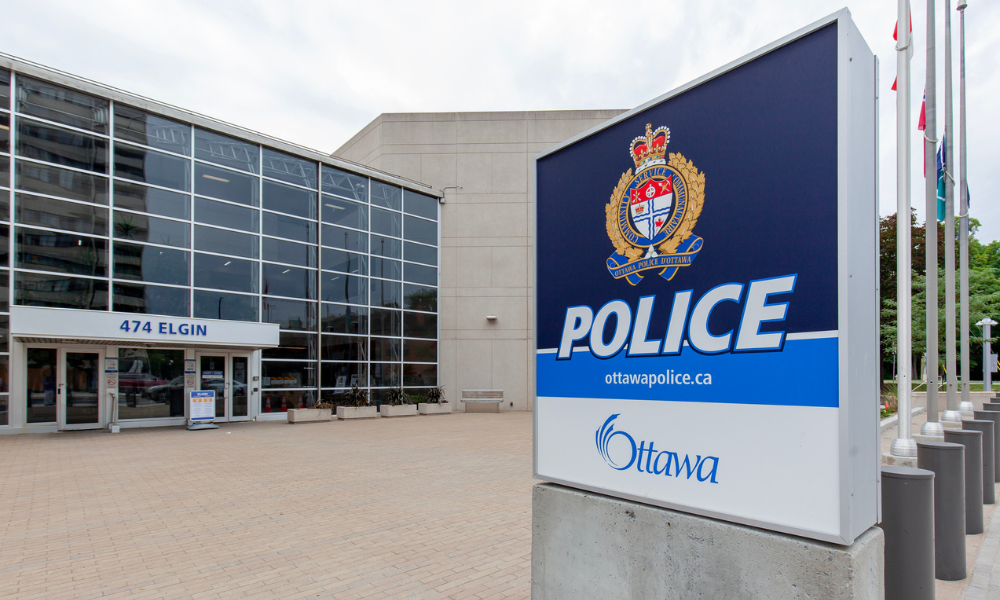
The federal government got a pass, but only because they were dealing with police ineptitude

Justice Paul Rouleau’s long-anticipated report on the invocation of the Emergencies Act was likely met with a sigh of relief from the federal government.
The Ottawa Police Service, on the other hand, were not so fortunate — for them, the report is a black eye.
The Report of the Public Inquiry into the 2022 Public Order Emergency dispels any notion that the occupation of downtown Ottawa was mealy a peaceful protest. Rouleau found the protest unlawful and at risk of becoming even more dangerous and unmanageable, concluding that “there was credible and compelling evidence supporting both a subjective and objective reasonable belief in the existence of a public order emergency.”
In short, Rouleau found that the decision to invoke the Act was appropriate.
It was a close call, with Rouleau noting that he did not reach his conclusion easily and "reasonable and informed people” could reach a different conclusion.
But there is no room for reasonable people to disagree with the commission’s finding that the protest inflicted significant harm on the people of Ottawa.
Rouleau confirmed what those who lived through the occupation knew all too well – the protest was relentlessly loud, noxious, and disruptive, with Ottawa’s downtown plunged into a general state of lawlessness, leaving residents feeling threatened, harassed, and helpless.
So yes, the Emergencies Act may have been needed, but only because the Ottawa Police Service proved ham-fistedly inept.
Rouleau found the OPS response was marked by serious intelligence, command, communication, and planning failures, leaving the cops “unclear on what they were and were not lawfully entitled to do in responding to the anticipated and ongoing protests.”
It turns out that it is hard to do your job when you don’t know what tools you can use.
Part of the social bargain in granting police extraordinary powers is that there must be confidence that police know the scope and limits of those powers. But police forces across Canada have consistently resisted calls to establish formal and mandatory continuing education programs.
I suspect that police often see this type of education as an impediment to their work. Ignorance of the law can make police work easier. Unfortunately, it also leads to civil rights violations, abuse of power, and in the case of the occupation of Ottawa – impotence.
How can we expect the police to execute their duties effectively and appropriately if they refuse to educate themselves?
Perhaps these examples from two trials I did a decade apart drive home the point:
In 2021, an Ottawa judge excluded a large amount of drugs because police did not advise my client of his right to counsel following arrest. To compound the problem, the court noted that the officer who violated the law “was assigned the task of teaching a recruit officer, (in) the practicalities of policing. It is impossible to do that effectively when one’s own understanding of such a fundamental duty is fundamentally flawed.”
A decade earlier, an Ottawa judge acquitted my client for the same reason saying, ”I am troubled that a sergeant of the Ottawa police force […] who is in charge of guiding and supporting other officers and providing advice to constables […] was unaware of the need to advise detained individuals of right to counsel.”
A little education would have fixed that problem, but here is the thing: the OPS has never prioritized educating its officers. If it did, it would have implemented transparent, ongoing, and objectively evaluated training.
In his testimony before the commission, former Ottawa police chief Peter Sloly acknowledged that he never had a clear understanding of whether the Charter allows police to intervene before the protest becomes an occupation.
As Rouleau highlighted, at times, police powers can be difficult to articulate, and reasonable people can differ on the scope of lawful police activity.
If the police had spent time learning about their powers instead of resisting calls for training and accountability, they might have known what to do when a convoy of protestors took over the downtown core.
Rouleau had some harsh words for the OPS, “The status quo – particularly the lack of clarity over the scope of existing police powers – is unacceptable. That lack of clarity may undermine the ability of police services to respond to protests in an appropriate and Charter-compliant way.”
Reasonable people should agree on the benefits of having police forces educated about their powers’ scope and limits. If the OPS had this education, perhaps the Emergencies Act would not have been needed.